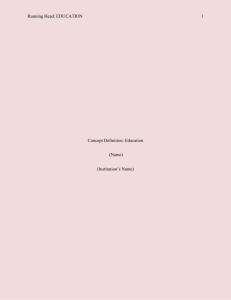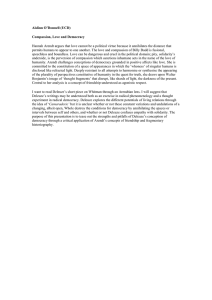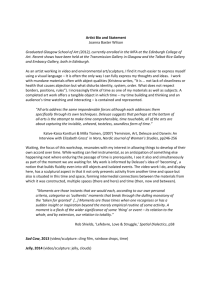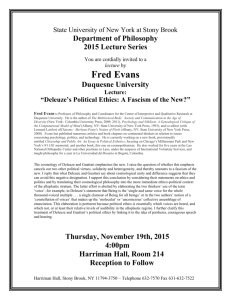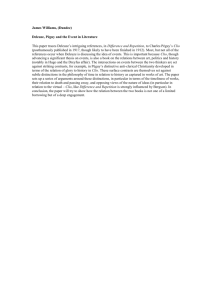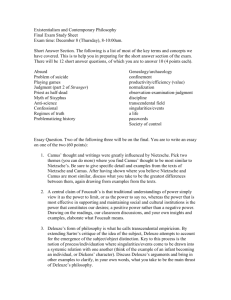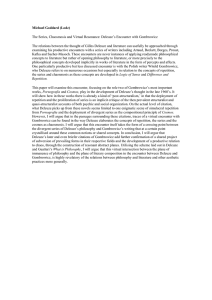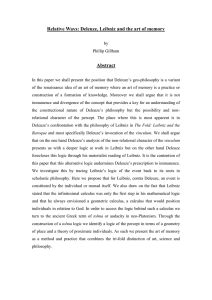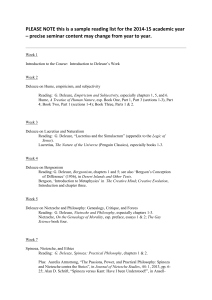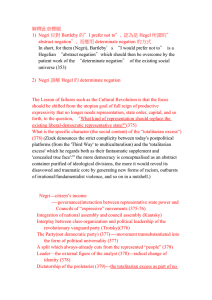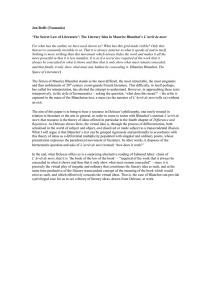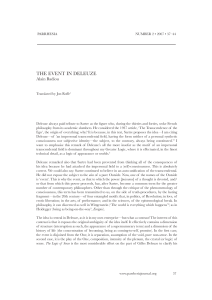Document 12779941
advertisement
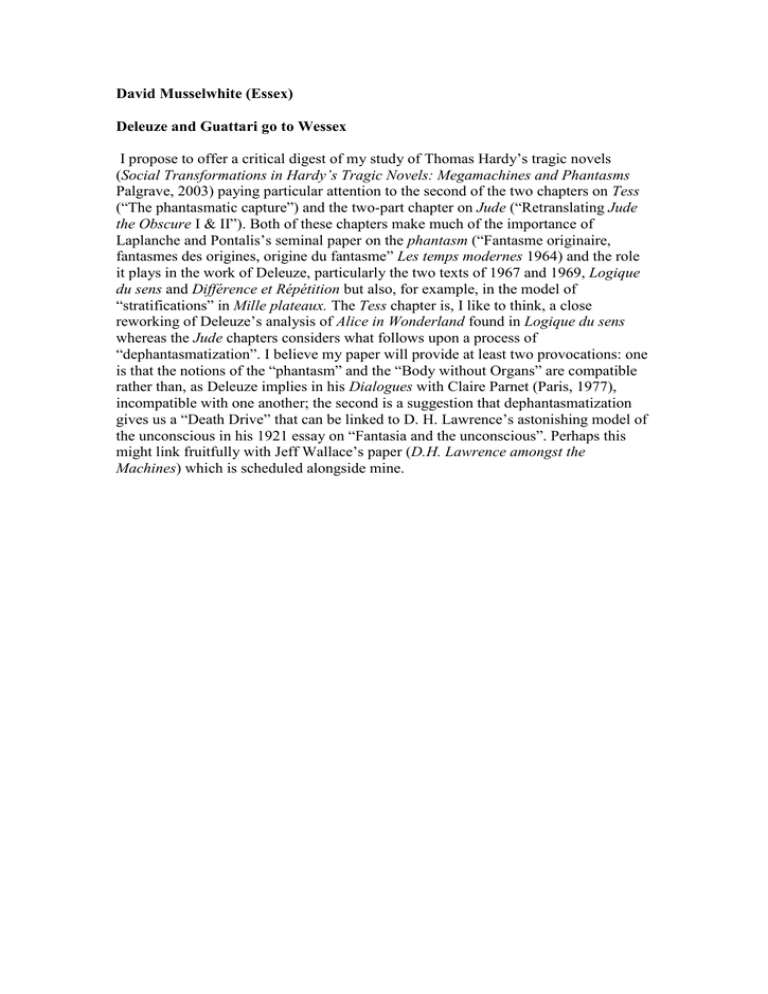
David Musselwhite (Essex) Deleuze and Guattari go to Wessex I propose to offer a critical digest of my study of Thomas Hardy’s tragic novels (Social Transformations in Hardy’s Tragic Novels: Megamachines and Phantasms Palgrave, 2003) paying particular attention to the second of the two chapters on Tess (“The phantasmatic capture”) and the two-part chapter on Jude (“Retranslating Jude the Obscure I & II”). Both of these chapters make much of the importance of Laplanche and Pontalis’s seminal paper on the phantasm (“Fantasme originaire, fantasmes des origines, origine du fantasme” Les temps modernes 1964) and the role it plays in the work of Deleuze, particularly the two texts of 1967 and 1969, Logique du sens and Différence et Répétition but also, for example, in the model of “stratifications” in Mille plateaux. The Tess chapter is, I like to think, a close reworking of Deleuze’s analysis of Alice in Wonderland found in Logique du sens whereas the Jude chapters considers what follows upon a process of “dephantasmatization”. I believe my paper will provide at least two provocations: one is that the notions of the “phantasm” and the “Body without Organs” are compatible rather than, as Deleuze implies in his Dialogues with Claire Parnet (Paris, 1977), incompatible with one another; the second is a suggestion that dephantasmatization gives us a “Death Drive” that can be linked to D. H. Lawrence’s astonishing model of the unconscious in his 1921 essay on “Fantasia and the unconscious”. Perhaps this might link fruitfully with Jeff Wallace’s paper (D.H. Lawrence amongst the Machines) which is scheduled alongside mine.
